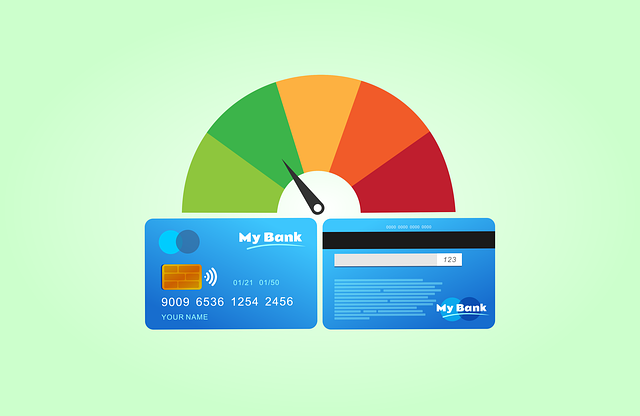Table of Contents
What is a Credit-Builder Loan?

Credit-builder loans are unique financing products designed to help build or repair credit. Getting approved for these specialized personal loans is much easier, making them a good fit for borrowers with no credit history or bad credit.
One thing that makes credit-builder loans unique is how the funds are disbursed. Instead of sending you the money at the start of the loan, the lender sets them aside during the loan term. It then releases the funds to you after you finish paying the loan off.
That’s one of the reasons it’s easier to get approved for these loans. Lenders take less risk because they control the money during the loan term.
So, a credit-builder loan is not a good fit if you need the money immediately. Their primary function is to allow borrowers to build a positive payment history to help build credit.
Payment history is the most critical factor that comprises credit scores in the two most widely used credit-scoring models: FICO® and VantageScores®. It comprises 35% of your FICO score and 40% of your VantageScore.
How does a Credit-Builder Loan work?

Credit-builder loans work by providing a way to build a positive history of payments. You can expect the following after getting approved for a credit-builder loan.
Low Borrowing Amounts
A credit-builder loan typically has lower loan amounts than a traditional loan. According to the Consumer Financial Protection Bureau (CFPB), loan amounts are usually between $300 -$1,000. Some options, like the CreditStrong Credit Builder Loan, offer multiple funding tiers.
The Lender Sets the Money Aside
As mentioned, a defining characteristic of a credit-builder loan is that the lender sets the money aside rather than disbursing the funds at the start of the loan. The lender places the funds in a savings account or certificate of deposit (CD).
The funds might earn interest depending on the lender and account type. Some lenders charge an administrative fee for opening the account.
Note: It might be possible to find a lender that releases the funds during the loan, but you’ll likely pay additional fees and interest.
Make Monthly Payments
Credit-builder loans are structured as installment loans with terms usually ranging from 6-24 months. You’ll make regular monthly payments towards the loan amount.
Payments include the principal, interest, and any applicable fees. Credit-builder loan APRs mostly range from 6%-16%.
Making on-time payments is the most important action with a credit-builder loan.
Lenders Report Payments to Credit Bureaus
Lenders typically send monthly reports to one, two, or all three major credit bureaus: Experian, Equifax, and TransUnion. Reports include whether you made that month’s payment or not.
Each on-time payment helps slowly build positive credit history a raise credit scores. A single late payment (usually 30 days past due) can derail any positive payment history and tank your credit score.
It’s imperative that your lender reports to at least one of the credit reporting agencies to help you build credit. Ensure the lender reports before signing a loan agreement.
You Get the Funds
Your lender releases the loan proceeds once you finish paying off the loan amount.
Where can I find a Credit-Builder Loan?

Credit-builder loans are not as widely available as traditional personal loans. You can start with an internet search or by finding individual lenders that offer them.
Here are the types of lenders that most commonly offer credit-builder loans.
Community Banks
Most larger commercial banks don’t offer these loans. However, you might be able to find them at local community banks.
Credit Unions
Some credit unions offer these loans, but you must be a member to apply. It can sometimes be tricky to join a credit union. You might need to work for certain companies or belong to certain organizations to join. However, if you are a member or have the opportunity to join a credit union, they typically offer the lowest rates.
Community Development Financial Institutions (CDFIs)
CDFIs are private financial institutions that exist to provide financial products and services to low-income and disadvantaged persons. They aim to help promote economic growth in underserved communities by making affordable services available. There are about 1,300 CDFIs in the United States.
Lending Circles
A lending circle is a group of people, typically friends or family members, who pool funds to give to one person. Most lending circles are groups of six to twelve people who each make a monthly payment, and a different member receives the funds in a round-robin fashion.
Formalized lending circles report to the credit bureaus, making them a viable option for credit-builder loans. However, availability is limited.
Online Lenders
Various online lending platforms offer credit-builder loans. Not all online lenders are licensed to operate in every state, so ensure the lender is available in your area. Many alternative and fintech (financial technology) lenders are available, so terms and rates vary significantly.
What are the qualifications for a Credit-Builder Loan?

You don’t need a good credit score for credit-builder loans. Most lenders only perform a soft credit pull for these loans, which doesn’t affect your credit score. Some lenders don’t perform any credit check.
However, some lenders will check your banking history using a consumer reporting system like ChexSystems. You’ll mostly likely need to provide employment and income verification.
You might also have to provide information like current loan balances. Most lenders will want your checking and savings account balances.
Keep in mind that you might have to pay a fee as well. But you can still get approved if you have:
- No credit.
- Limited credit history.
- A poor credit score.
What are the benefits of Credit-Builder Loans?
The primary advantage of a credit-builder loan is that it provides an opportunity to establish or repair credit. People with bad credit or no credit score often face the predicament of needing to open credit accounts to build positive history but cannot get approved for those accounts.
Credit-builder loans are available for borrowers at all credit levels, whether they have fair, bad, or no credit. They’re particularly useful for people with no history of credit.
These loans can help you build credit scores fast. Establishing a credit score usually takes about six months of credit history. These loans run for six months to a couple of years. Since most lenders report to all three bureaus, on-time payments build credit and raise credit scores.
The structure of the loans allows you to build up savings as well. Since you don’t get the funds until after the loan is paid, you can put that money into a savings account as a reserve for a rainy day.
What are the drawbacks of Credit-Builder Loans?
The borrowing amounts are typically $1,000 or less. While the main point is to build positive payment history rather than using the money for a specific reason, making a monthly payment for a small amount can still feel frustrating.
Any late payments will significantly deteriorate your credit. The whole point of the loans could backfire if you miss payments. Don’t take out a credit-builder loan unless you know you can afford to make the monthly payments without fail.
You could end up paying a significant amount in fees. While most administrative fees are manageable, some lenders charge application fees. Missing payments will also wrack up late fees.
Another potential disadvantage is that you’re paying interest on money you can’t access. While you’ll ultimately end up with the funds, paying interest before receiving it can feel like a waste of time and money.
Credit-Builder Loan Pros & Cons

Pros:
- Helps establish or repair credit history.
- Available for borrowers of all credit levels.
- Can help quickly establish or raise credit scores.
- You’ll end up with savings at the end of the loan.
Cons:
- Usually for lower borrowing amounts.
- Might have to pay additional fees.
- Even one late payment could cause bad credit.
- You’ll pay interest on money you can’t access until the end of the loan.
How can I effectively use a Credit-Builder Loan?

The following strategies can help you make the most of your credit-builder loan and improve your credit score.
Never Miss a Payment
We mentioned it already, but it bears repeating – the most important thing to do is to make all payments on time. And that doesn’t just apply to credit-builder loans. The number one principle of good credit management is to not miss payments.
Create a Budget
This is a vital step to help avoid missing payments. You want to ensure you can afford payments before agreeing. Creating a budget keeps you on track.
Don’t Pay Off the Loan Early
While it might seem counterintuitive since you’d want to pay most loans off early, doing so defeats the purpose of a credit-builder loan. You’re trying to establish a proven track record of managing debt and making debt payments. The best way to do that is with regular payments on your credit report.
Paying the loan off early deprives you of the opportunity to use the full loan term to establish multiple months of on-time payments. If you’re fortunate enough to have the funds to pay off the loan, consider setting it aside in a bank account and creating automatic payments for the remainder of the loan term.
Monitor Your Credit Reports
Keep an eye on your credit report during the loan term (and after). Under the Fair Credit Reporting Act (FCRA), everyone is entitled to a free credit report from each of the three credit bureaus. You can access your free credit report at www.AnnualCreditReport.com.
You want to ensure your payments are getting accurately reported each month. While monitoring the report, keep an eye out for any incorrect information. Correcting credit report mistakes protects your credit score. You also want to track your credit score progress. Seeing those numbers go up each month could help keep you motivated.
Create a Plan for Using the Funds After the Loan
When most people receive loan funds, they worry about paying the loan back. Credit-builder loans provide the funds after you’ve paid for them, so you don’t have to worry about that.
You can use the money however you want, such as building your personal savings, making a small investment, or buying something fun to reward yourself. While it won’t directly help with building credit, having a plan for the money gives you something to look forward to. It can help you stay on track during those months of paying interest for money you don’t have.
Frequently Asked Questions

Here are the most common questions about credit-builder loans.
How much does a Credit-Builder Loan help boost credit scores?

The exact impact of credit-builder loans on your credit score depends on your previous credit history. These loans provide a threefold benefit to credit:
- On-time payments build positive payment history.
- The longer the loan terms, the more it adds to your average age of accounts.
- Adding an installment loan could help your credit mix.
According to the CFPB, credit-builder loans are most beneficial for borrowers with no credit history, known as “credit invisible.” A study from the organization revealed that borrowers with no existing debt could raise their credit score by as much as 60 points.
These loans likely won’t be a fix-all cure for bad credit borrowers with existing debt or a history of late payments. However, they can help turn the tide for credit-challenged individuals by establishing positive payments.
If you’re trying to overcome a low credit score, using credit-builder loans as part of a multifaceted credit improvement plan would be best. Other positive credit behaviors to incorporate include:
- Making on-time payments for all credit accounts, rent, or utility bills.
- Paying down existing debt to credit utilization below 30%.
- Keeping older accounts open to increase the average age of accounts.
- Maintaining a good credit mix.
- Avoiding opening new credit accounts unless they help repair credit (i.e., debt consolidation loans or balance transfer cards to help lower your credit utilization rate).
Can I get a Credit-Builder Loan with no Credit Score?
You don’t need a good credit score to qualify. Several lenders offer these loans to borrowers with no credit history or score.
What are other ways to Build or Repair Credit?

Here are some other ways to help build your credit file. You can use these strategies in lieu of or in conjunction with a credit-builder loan.
Secured Credit Card: Most credit cards are unsecured, meaning they don’t require collateral. But you’ll usually need decent to good credit for approval.
With a secured credit card, you make a cash security deposit as collateral to open the credit line. Since it’s secured, these credit cards are more accessible for consumers with no credit or bad credit.
Once opened, use the card to make purchases and pay off the balance. The credit activity and positive payment history will increase your credit score.
Become an Authorized User: Getting added to someone else’s credit card (usually a family member) as an authorized user lets you piggyback off their good credit history. The card’s credit limit gets added to your credit report, lowering your credit utilization rate. Moreover, credit card payments are added to your payment history.
For this method to work, you must ensure the primary cardholder is responsible and makes timely payments. It’s also best to get added to a card with a high credit limit and a low or no balance. In addition, not all credit card issuers report authorized users to the credit bureaus, so it might not help your credit.
Other Personal Loans: It might be possible to get other personal loans, even if you don’t have credit history or a low credit score. However, you might only be able to get a secured loan, which requires collateral.
Self-Reported Payments: You might also be able to add self-reported accounts to your on-time payment history. For example, you could ask your landlord to report rent payments.
One way to add self-reported accounts is Experian Boost®. The unique service scans your bank account(s) for eligible payments, including rent, utilities, and some streaming service subscriptions.
Can a Credit-Builder Loan help with Small Business Loans?

Lenders review your personal and business credit when you apply for a small business loan. Your personal credit is much more vital if you don’t have business credit yet.
Like consumer financing, a high credit score increases approval odds and provides access to more advantageous loans. In particular, the higher your credit score, the lower your interest rates.
Credit-builder loans can improve your consumer credit score, which can help with small business loans. However, building or improving credit takes time, regardless of the method.
Consider using a bad credit business loan if you need urgent funding but have a low credit score. While these lows have higher interest rates, most lenders for bad credit business loans provide convenient online applications with fast approval and funding times.
You can use a business loan for bad credit as bridge financing. It provides short-term funding for your business while you improve your credit and grow your business history. Then you can qualify for more advantageous business financing.
How to Use a Credit-Builder Loan – Final Thoughts

A credit-builder loan could be a good option for credit-invisible individuals to establish credit. They can also help credit-challenged consumers start the process of improving their credit.
But you must have a plan, including a budget, to ensure you can afford the loan and not miss payments. Late payments, or even worse, defaulting on the loan, will severely damage your credit.
Shop lenders to find the best credit-builder loans, rates, and terms. Ensure the lender reports to the credit bureaus. Finally, carefully review the loan agreement and ensure you understand the terms, fees, interest, and other loan covenants.
Contact us if you have more questions on credit-builder loans or to apply for a small business loan. Our funding experts can help you find the best business loan for your credit score range.



.png#keepProtocol)




.png#keepProtocol)
More Stories
Biggest stock movers today: Okta, Snowflake, and more (NASDAQ:OKTA)
EU leader warns of risks of wider war; NATO rules out sending troops to Ukraine
Bitcoin soars to two-year high above $56,700 as halving event looms